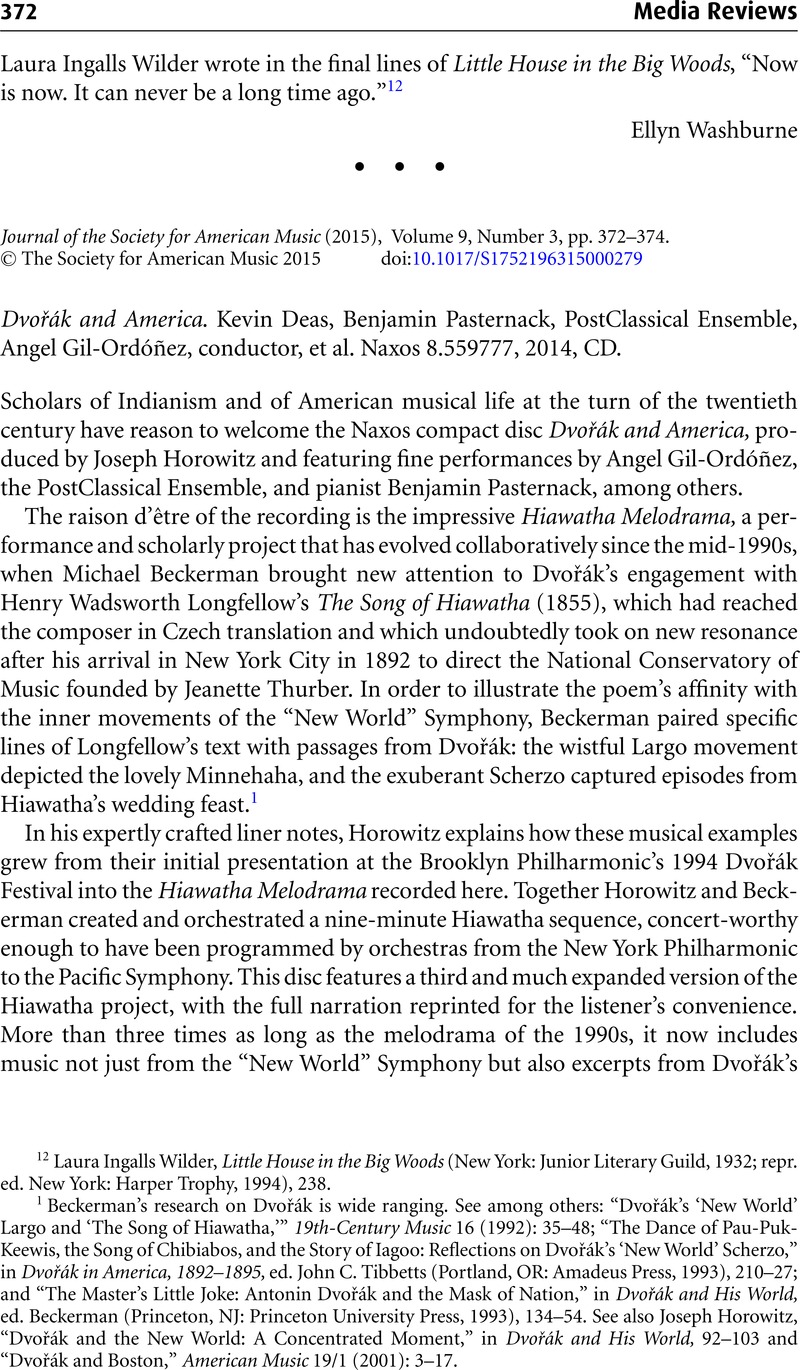No CrossRef data available.
Published online by Cambridge University Press: 11 August 2015

1 Beckerman's research on Dvořák is wide ranging. See among others: “Dvořák's ‘New World’ Largo and ‘The Song of Hiawatha,’” 19th-Century Music 16 (1992): 35–48; “The Dance of Pau-Puk-Keewis, the Song of Chibiabos, and the Story of Iagoo: Reflections on Dvořák's ‘New World’ Scherzo,” in Dvořák in America, 1892–1895, ed. John C. Tibbetts (Portland, OR: Amadeus Press, 1993), 210–27; and “The Master's Little Joke: Antonin Dvořák and the Mask of Nation,” in Dvořák and His World, ed. Beckerman (Princeton, NJ: Princeton University Press, 1993), 134–54. See also Joseph Horowitz, “Dvořák and the New World: A Concentrated Moment,” in Dvořák and His World, 92–103 and “Dvořák and Boston,” American Music 19/1 (2001): 3–17.
2 Pisani, Michael, “From Hiawatha to Wa-Wan: Musical Boston and the Uses of Native American Lore,” American Music 19/1 (2001): 39–50CrossRefGoogle Scholar; and chapter 4 of Imagining Native America in Music (New Haven, CT: Yale University Press, 2005), 126–57; and Trachtenberg, Alan, Shades of Hiawatha: Staging Indians, Making Americans, 1880–1930 (New York: Hill and Wang, 2004)Google Scholar. See also Nickerson, Cynthia D., “Artistic Interpretations of Henry Wadsworth Longfellow's The Song of Hiawatha, 1855–1900,” Art in America 16/3 (1984): 49–77CrossRefGoogle Scholar.
3 Pisani, “Two Musical Modernists in Search of National Legitimacy: Arthur Farwell and Béla Bartók, 1904–1908,” in Music, American Made: Essays in Honor of John Graziano, ed. John Koegel (Sterling Heights, MI: Harmonie Park, 2011), 513–40. On Farwell more generally, see Pisani, Imagining Native America in Music, 177–79, 233–35; Culbertson, Evelyn Davis, He Heard America Singing: Arthur Farwell, Composer, and Crusading Music Educator (Metuchen, NJ: Scarecrow Press, 1992)Google Scholar; and Levy, Frontier Figures: American Music and the Mythology of the American West (Berkeley: University of California Press, 2012), chapters 1–2.